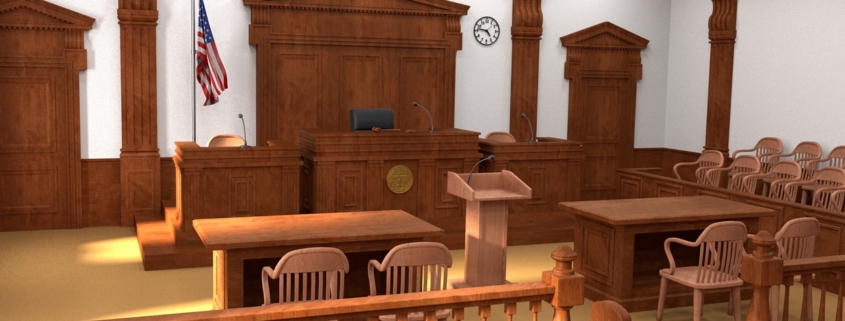Are the Courts Ready for Business as Usual after Covid-19?
In early 2020 as the Covid-19 pandemic began to sweep across the US, unprecedented mitigation efforts were implemented to “flatten the curve” and slow the spread of the novel coronavirus. Social distancing requirements, nonessential business closures, and stay-at-home/shelter in place orders disrupted every area of our society, including the legal industry.
The court schedule slowed to a crawl, and for the first time ever, the Unified Judicial System went live with virtual court hearings in Alabama in late March. Most courts suspended jury trials during the lockdown, and only emergency hearings were allowed. Not surprisingly, this created a major bottleneck in an already strained court system.
What few of us realized in the early days of the pandemic was that the coronavirus was not going away anytime soon. Phased-in court reopening plans for the summer and fall were disrupted by a second-wave outbreak that took us well into the winter months, forcing many courts to revise their plans and continue limiting jury trials.
It has been more than a year since the pandemic began, and our country is still dealing with the effects of the deadly Covid-19 outbreak. We are finally starting to see significant drops in case numbers, and although new variants of the virus still pose a threat, we are cautiously optimistic that things can return to normal soon.
Light at the End of the Tunnel: But Are the Courts Ready?
As the situation improves, most Alabama courts are finally resuming a full in-person schedule or something close to it. But unfortunately, the damage that the extended Covid season has inflicted on the system will be felt for some time to come. The bottleneck created by the months-long limited court schedule is not likely to clear up anytime soon, and it is expected that there will be significant delays in the progress of cases for at least the next 12 to 18 months.
One of the difficulties that many attorneys are running into is an issue that many other industries have faced during the pandemic – supply chain problems. More specifically, as the number of cases ramp up, expert witnesses are in such high demand right now that many of them cannot be scheduled until several weeks or even several months out. As we know, the testimony of expert witnesses can often make or break the success of the case, so their lack of availability poses a major problem for parties who are pursuing litigation.
Mediation and Arbitration: Practical Dispute Resolution Tools for Unprecedented Times
With the lengthy anticipated timeframe to complete a court trial in the aftermath of Covid-19, it is wise for litigators to consider an alternative approach. Toward that end, mediation and arbitration are tried and tested forms of alternative dispute resolution (ADR) that provide several potential benefits for the parties involved.
- Mediation: Mediation is essentially a form of negotiation facilitated by third-party mediator and held in a neutral setting. The process is private and confidential, meaning the details of the case never become part of the public court record. While the process is facilitated by a neutral mediator, a settlement can only be reached if all parties agree to it. This gives participants more control over the process and allows for more creative resolutions that would be very difficult to achieve in a court setting. Mediation works very well for business disputes, personal injury claims, family legal matters, and virtually any other type of civil case. Some criminal cases can be mediated as well.
- Arbitration: Arbitration is similar to mediation in that both are private proceedings that are conducted outside of the court process. The main difference between the two is that the arbiter usually has the authority to decide the case based on its merits, unless the parties go to non-binding arbitration. Arbitration is commonly used to resolve commercial disputes, and arbitration clauses are often written into commercial contracts in the event that a future dispute arises.
Even during normal times, mediation and arbitration have been increasingly preferred methods for resolving various types of legal disputes. These processes are very affordable compared to litigation, and because they are done privately between the parties, they can be completed in far less time than a lengthy trial that must adhere to the court calendar. With the extended court delays and “supply chain” issues brought on by Covid-19, it is more important than ever for parties that are involved in a legal case to consider mediation or arbitration as alternatives to resolve their dispute.







Leave a Reply
Want to join the discussion?Feel free to contribute!